Are you ready to streamline your lab test referral process? In this article, we'll explore a handy letter template designed to make your requests clear and efficient, ensuring you get the results you need without a hitch. Whether you're a healthcare professional or a patient seeking tests, having a polished referral letter can save time and avoid confusion. So, let's dive in and take a closer look at how you can craft the perfect lab test referral request!

Patient Information
Patient information plays a crucial role in the lab test referral process, ensuring that healthcare providers have all necessary details for accurate testing and diagnosis. Essential elements include the patient's full name, which uniquely identifies the individual, date of birth, which helps verify identity and age-related factors, and contact information, enabling follow-up communication. Additionally, medical history outlines previous conditions, allergies, and medications affecting test results. Insurance information may streamline processing for testing services, while referring physician details facilitate seamless coordination between medical professionals. Accurate demographic information, such as address and ethnicity, can assist in population health assessments and resource allocation. Overall, comprehensive patient information significantly enhances the efficiency and accuracy of lab testing.
Specific Tests Required
When consultants order tests for patients, precision in specifying the required tests is crucial. A referral request may require several key components to ensure clarity and comprehensiveness. For example, a request might indicate the necessity for a complete blood count (CBC), which assesses overall health and detects a variety of disorders such as anemia or infection. Additionally, specific tests like lipid panels, which measure cholesterol and triglyceride levels, can be requested to evaluate cardiovascular risk. Furthermore, thyroid function tests (TFTs) can be necessary to measure the concentration of hormones such as Thyroxine (T4) and Thyroid-stimulating Hormone (TSH), with particular reference ranges varying among laboratories. Essential details include patient identification information, urgency of testing, and any pertinent medical history that could influence test interpretation.
Relevant Medical History
Chronic conditions such as diabetes mellitus (affecting approximately 34 million adults in the United States), can lead to complications requiring regular lab tests including HbA1c measures. Hypertension, a condition impacting around 47% of American adults, necessitates frequent monitoring of blood pressure and cholesterol levels through lipid panels. Other factors such as medication usage (like statins for cholesterol management), age (individuals over 65 are at higher risk), or a family history of cardiovascular diseases can further emphasize the need for comprehensive blood work. Additionally, referral to specialized labs for tests like thyroid function (notably TSH, Free T4, and T3 levels) may be critical for diagnosing conditions such as hypothyroidism or hyperthyroidism.
Purpose of Referral
A lab test referral request serves as a crucial document enabling healthcare providers to direct patients for specialized diagnostic testing. This process often initiates when a patient exhibits symptoms warranting further examination, such as unexplained fatigue or persistent pain. The referring physician, such as a primary care doctor, must detail specific tests, such as blood panels or imaging scans, ensuring clarity in objectives like diagnosing conditions or monitoring health statuses. Accurate patient information, including name, age, and medical history, is essential for effective results interpretation. Timeliness in referrals promotes swift diagnosis and treatment decisions, directly impacting patient health outcomes. Clear documentation fosters seamless communication between healthcare providers and the laboratory, facilitating efficient and accurate test results.
Contact Information
Contact information is crucial when requesting a lab test referral. Patient's full name, date of birth, and insurance details help identify the patient in the healthcare system. Referring physician's name, practice location, and contact number ensure seamless communication. Lab's address is vital for accurate sample collection and testing. Relevant phone numbers for both provider and lab facilitate follow-up inquiries. Including any specific test required, like CBC (Complete Blood Count) or BMP (Basic Metabolic Panel), aids efficient processing of the referral request. Proper documentation streamlines administrative tasks and enhances patient care.
Letter Template For Lab Test Referral Request Samples
Letter template of lab test referral request for specialized diagnostics.
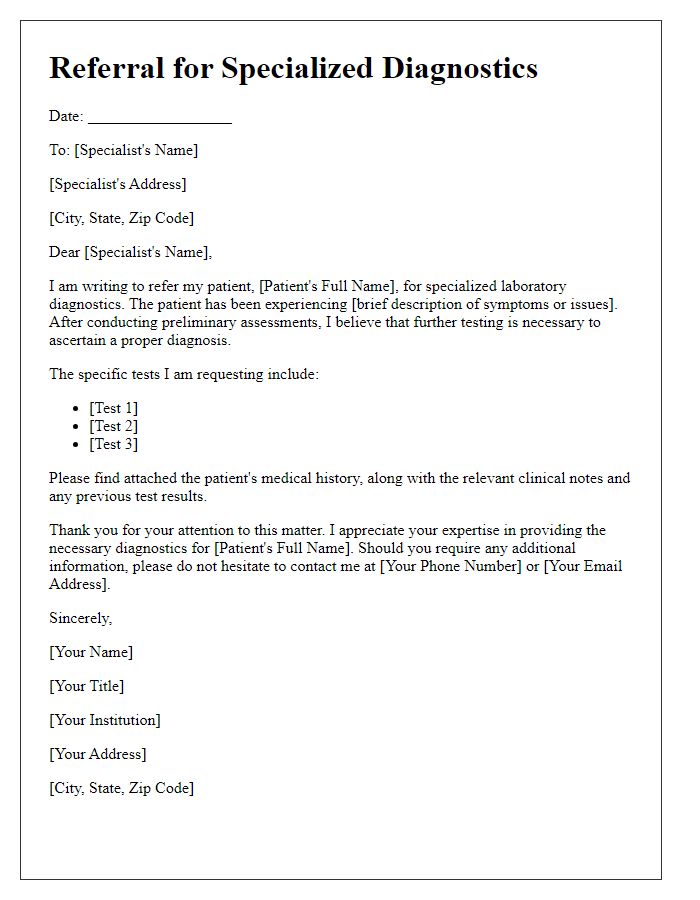
Letter template of lab test referral request for infectious disease screening.
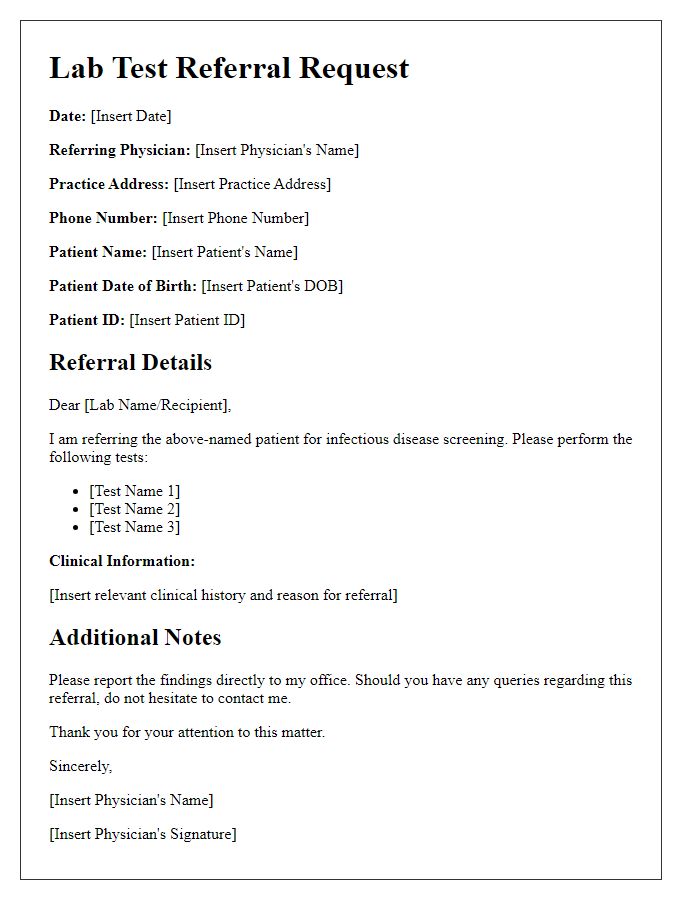
Letter template of lab test referral request for comprehensive metabolic panel.
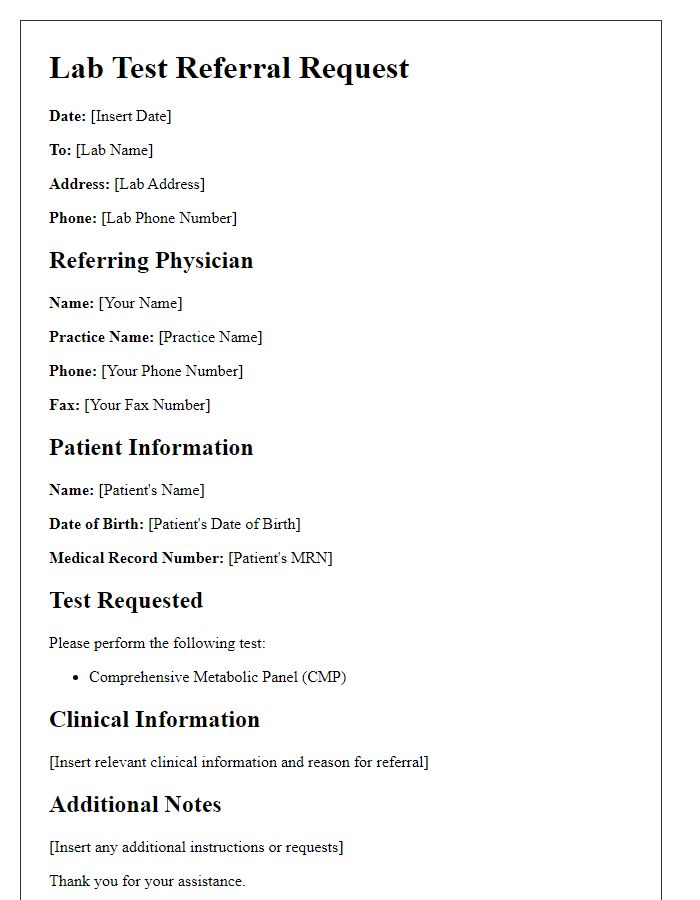
Letter template of lab test referral request for hormone level assessment.
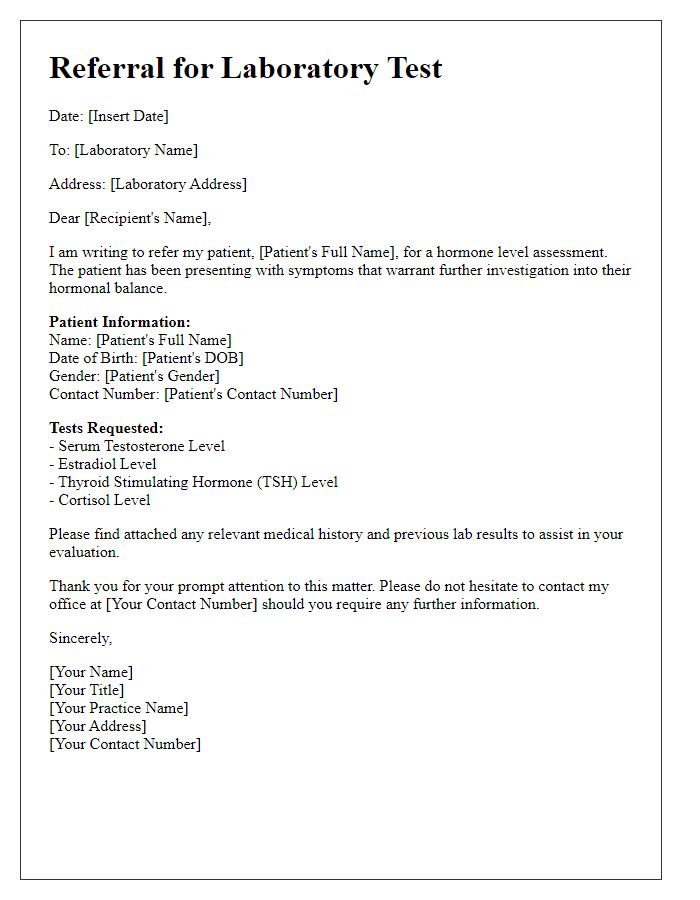

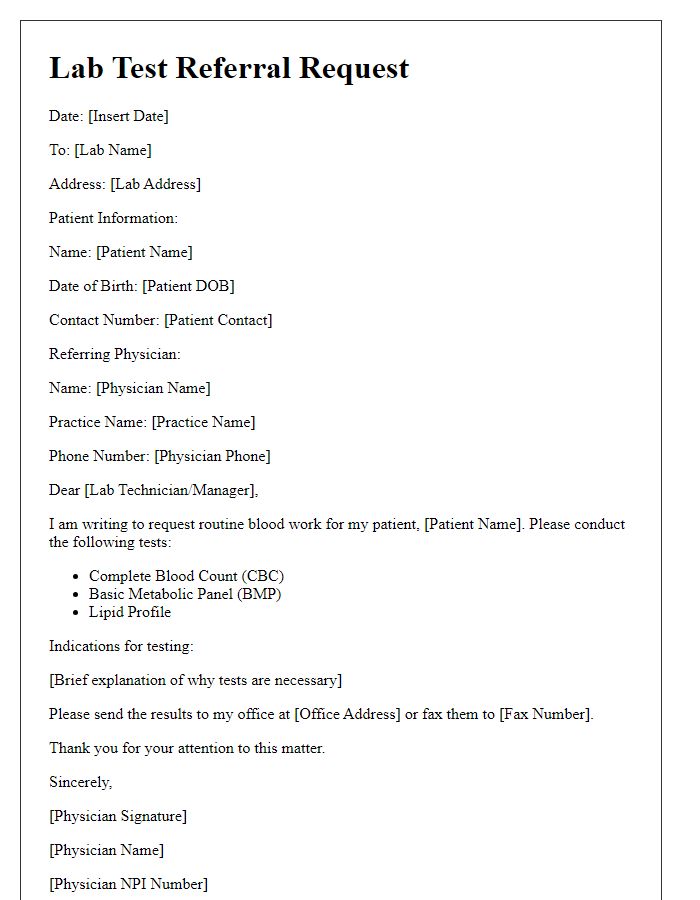
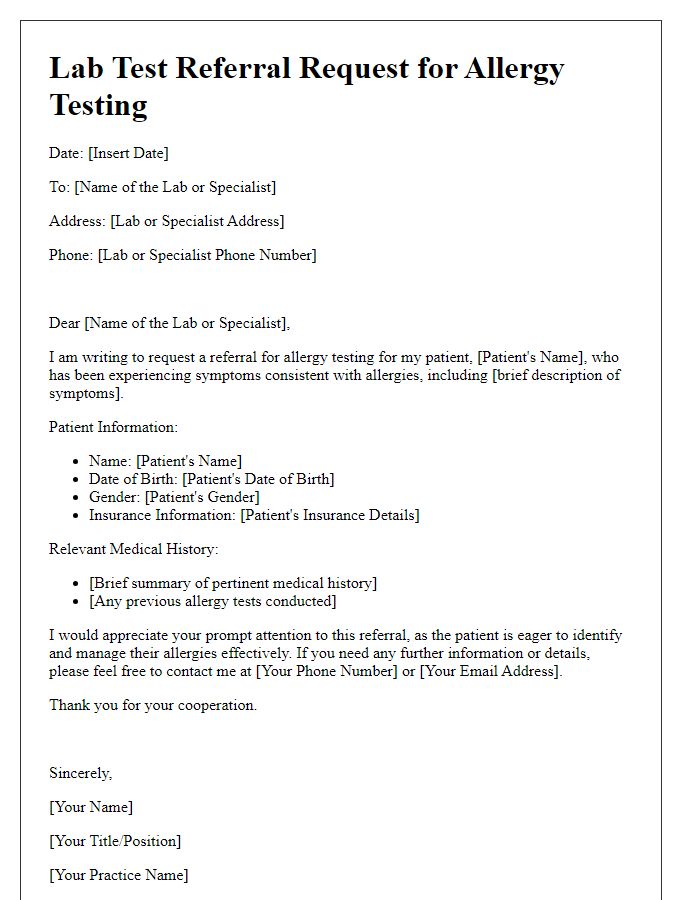
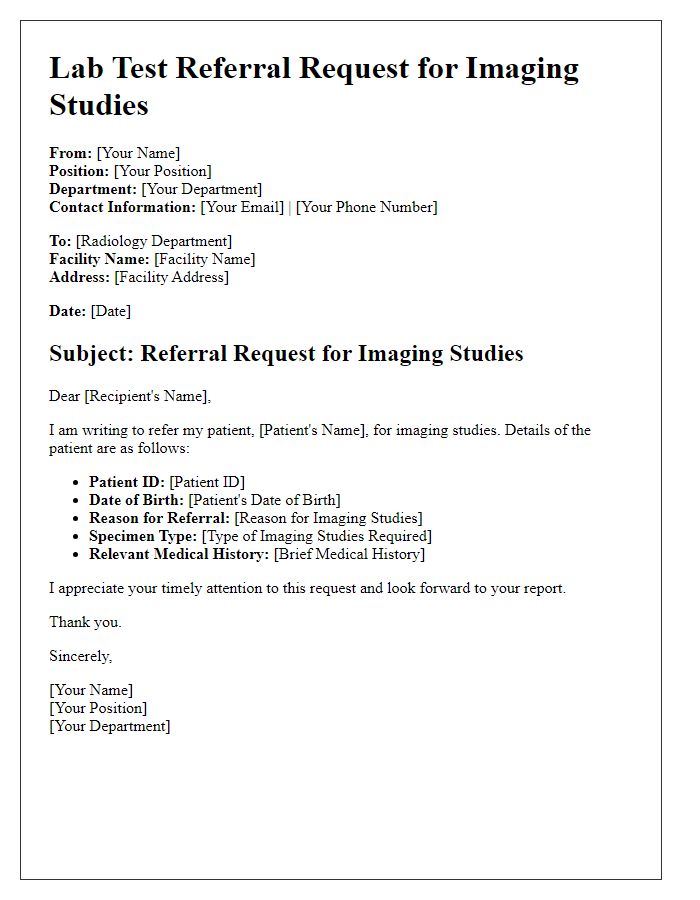
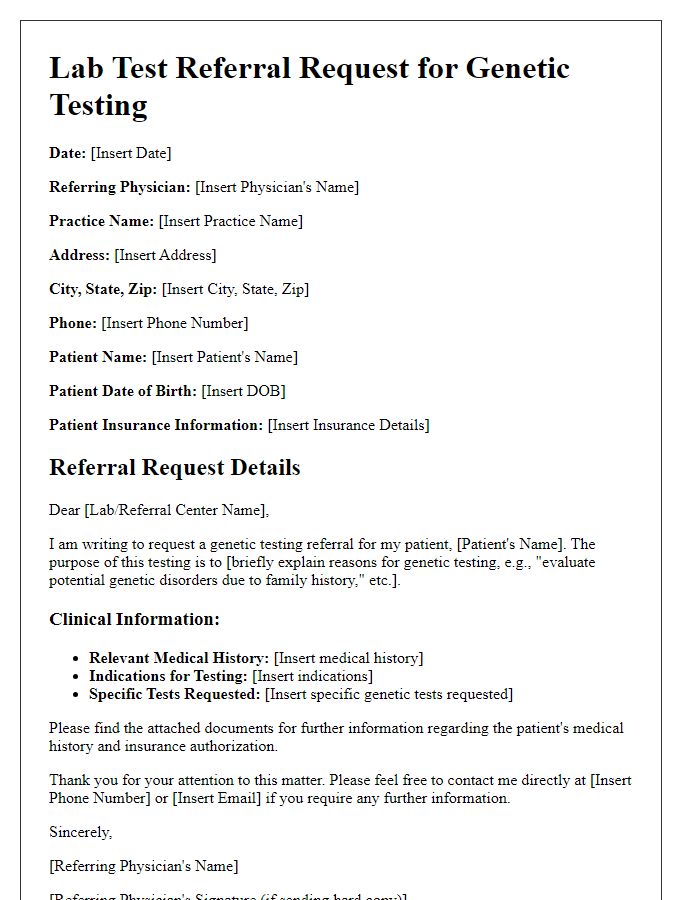
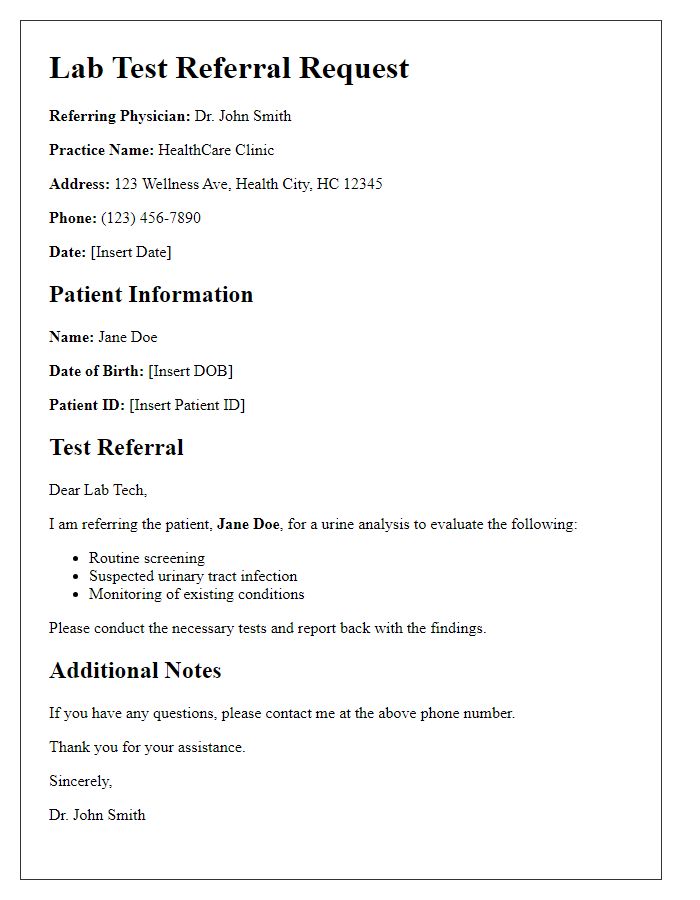
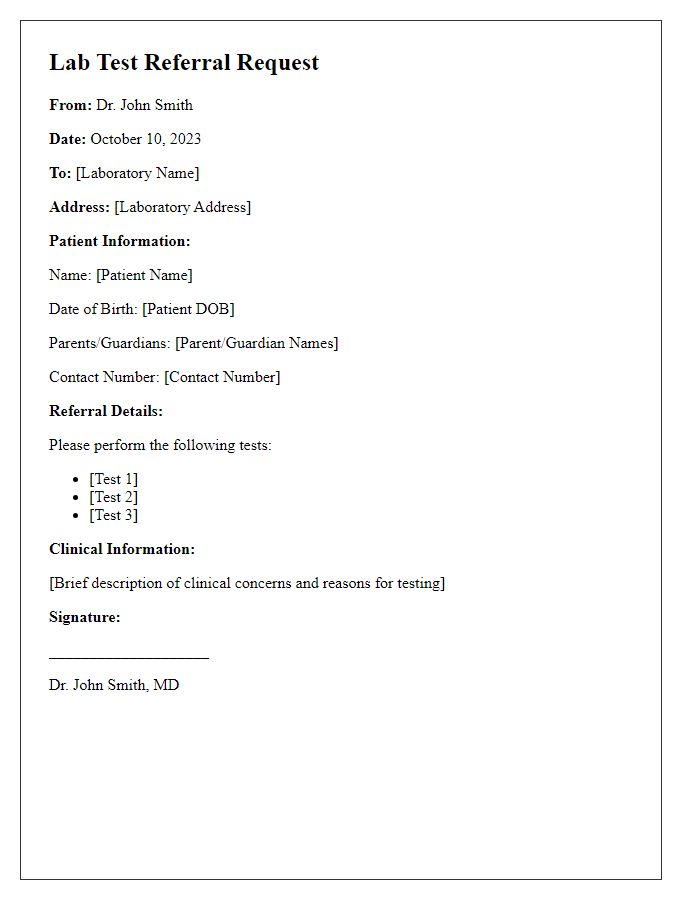


Comments